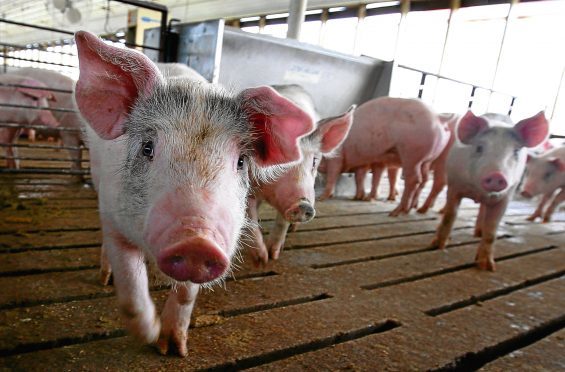Nearly 30% of pig businesses have seen workers leave since the EU referendum, according to a survey by the National Pig Association (NPA).
The organisation says two thirds of businesses have reported more difficulty in finding EU labour since the vote, and has called on the government to take steps to preserve access to European workers.
In a submission to the Migration Advisory Committee (MAC), the NPA warned the UK pig industry faced a labour crisis and appealed for a way in which so-called “low-skilled” permanent EU workers remained accessible to the sector. The submission on behalf of pig farmers, meat processors and allied businesses also queried the use of the term “low-skilled” to describe the EU workers they employed.
NPA chief executive Zoe Davies said that although many roles did not require graduate level training, they did require a high degree of technical skill.
“The government has made it clear it wants to restrict permanent so-called low-skilled workers after we leave the EU. The NPA is making the argument in the strongest possible terms ‘lower skilled’ workers employed in the pig sector should be included on the ‘shortage occupation’ list and prioritised after we leave the EU,” she said.
“We are already seeing the effects of Brexit on our ability to secure EU workers and our survey highlights the scale of the crisis this sector faces if we get our immigration policy wrong. Without the workers, we simply can’t produce and process the fabulous British pork enjoyed by millions of consumers. Exporting pork production is in nobody’s interest.”
The survey, which was hosted on the NPA’s website, received 138 responses. Findings showed that around 90% of businesses using non-UK labour employed them on a permanent basis, with 94% of non-UK workers coming from the EU. Nearly half of those employing EU labour said these workers were considering leaving the UK due to uncertainty over Brexit.
Meanwhile four in every five respondents said farming was not being offered as an attractive proposition by UK educational establishments, and more than half claimed colleges were not providing employees with the necessary skills.
NPA senior policy advisor Ed Barker said farming was often not seen as a desirable career choice
He added: “The talent and enthusiasm is out there. It is critical that, as we leave the EU, the agricultural industry works with government and the educational sector to champion agriculture as a great place to work and to provide the right training and skills to meet the sector’s needs.”
